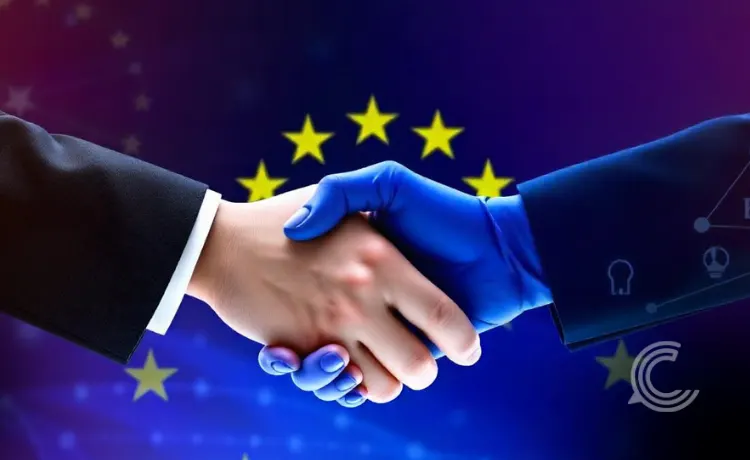EU Pushes for Quick Use of Frozen Russian Assets for Ukraine

Key Points:
- Approximately 175 billion euros in cash from frozen Russian assets has matured and is held primarily in Europe, fueling the debate over its use
- A document indicates that EU heads of state will push for concrete proposals on deploying these cash balances to finance Ukraine’s needs for 2026-2027, including for military and defense efforts
- Key financial institutions, such as Euroclear, and cautious member states have highlighted respecting the rule of law and ensuring proper burden-sharing among G7 partners due to complex legal and financial risks
European Union leaders are calling for accelerated action on using immobilized Russian sovereign assets to provide crucial financial backing for Ukraine. This comes amid mounting pressure, reportedly including from U.S. President Donald Trump, to leverage these funds for Kyiv’s war efforts.
A draft document, which forms the basis for conversations among the 27 EU heads of state meeting in Brussels, reveals a strong commitment to address Ukraine’s pressing financial requirements for 2026-2027. This includes support for its military and defense capabilities.
The Council is explicitly calling on the European Commission to “present as soon as possible concrete proposals involving the possible use of the cash balances associated with the immobilized Russian assets,” as reported by CNBC.
The Financial and Political Context
The EU’s executive arm, the European Commission, has been exploring mechanisms to deploy the profits generated from the substantial sum of approximately 175 billion euros ($204 billion) in cash that has matured from the frozen Russian assets held within the bloc.
The assets themselves, primarily Russian central bank reserves, were frozen following Moscow’s full-scale invasion of Ukraine in 2022. While initial steps focused on using only the accrued interest for Ukraine, the push now is for measures involving the principal cash balances.
Pressure from the U.S., including from the Trump administration, has been a significant catalyst, urging G-7 counterparts like France, Germany, and Italy to consider seizing billions in these frozen funds.
Legal and Market Stability Concerns
Despite the urgent political will to aid Ukraine, several member states remain cautious, particularly regarding the potential legal and financial ramifications of moving beyond the use of interest accrued on the assets.
Belgium, host to Euroclear, the financial institution holding the bulk of Russia’s frozen state assets in Europe, has been particularly vocal. Belgium’s leadership is concerned about the legal implications, especially once the conflict concludes, and insists on a joint commitment to burden-sharing the responsibilities. The draft document stresses “the importance of ensuring fair burden-sharing and coordination of efforts with G7 partners.”
Valerie Urbain, CEO of Euroclear, highlighted the institutional concern, telling CNBC earlier this month that her role involves drawing leaders’ attention to the broader implications of their decisions. “We have been extremely vocal in making sure that we respect the rule of law,” Urbain stated. She emphasised the critical need to maintain investor confidence in European markets, especially given Europe’s “gigantic financing needs” for sovereignty, green transition, and digital innovation.
A Shift in European Support Dynamics
The renewed push for action comes at a critical time when European governments face increased pressure to fill a potential gap in support for Kyiv, particularly after U.S. President Donald Trump scaled back on direct financial and military aid.
Data reported by the Kiel Institute for the World Economy showed that between July and August, Ukraine received about 7.5 billion euros in financial and humanitarian support, with 86% of the newly allocated funds originating from EU institutions, as reported by the Kiel Institute’s Ukraine Support Tracker. This illustrates the growing reliance on European financing.
The U.K., France, and Germany recently issued a joint statement advocating for stronger measures. “We are ready to progress towards using, in a coordinated way, the value of the immobilised Russian sovereign assets to support Ukraine’s armed forces and thus bring Russia to the negotiation table,” their statement read.
The upcoming EU summit is expected to crystallize these discussions, potentially leading to a concrete mechanism for leveraging the cash balances to provide long-term, predictable financing for Ukraine’s defense and recovery.



